Is Ukraine, armed with billions of dollars worth of American weapons, really winning the war against Russia? It depends. If you restrict yourself to reading Western news media, then Ukraine is indeed winning. How can Ukrainians not win when the media keep reporting that thousands of Russian helicopters, aircrafts, drones and whatnot are dropping from the sky every day?
In the same breath, NATO reported up to 40,000 Russian troops have been killed, wounded or taken prisoner in Ukraine. Putin also lost thousands of tanks, armour vehicles and other war machines. The Ukrainian forces reportedly have attacked the Russian military so fiercely that not only Ukraine suffers zero lost, but also saw Russian forces surrendering without a fight.
In fact, tons of American and British tabloids said Vladimir Putin had gone mad, mentally ill, dying of cancer or even so terrified of losing the war that he had gone hiding under some secret bunkers. Yet, despite winning the war, Ukrainian President Volodymyr Zelensky concedes that his country will not join NATO and agreed to engage in peace negotiations with the devilish Putin.
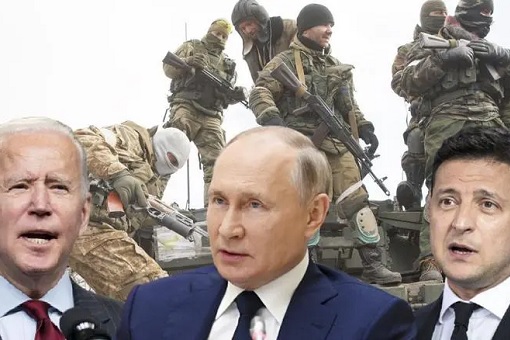
Is the “international” community really united in condemning and isolating Russia? That also depends. If by international you mean the U.S., North America and Europe, then it’s true. However, some major nations supposedly allies of the U.S. had decided not to join the bandwagon, despite the West’s popular argument that 141 countries voted to condemn Russia in UN.
While Colombia, Argentina and Chile have called for swift withdrawal of Russian troops from Ukraine, other Latin American countries have stopped short of calling for a Russian exit. For example, Mexico declines to impose economic sanctions on Russia. Brazil is another Latin America’s biggest democracy that has refused to sanction the Kremlin.
Along with 5 countries (Russia, Belarus, Syria, North Korea and Eritrea) that voted against the United Nations resolution condemning Russia for invading Ukraine, there were another 35 nations that chose to abstain or stay neutral. Aside from China, surprisingly, U.S. allies like India and Pakistan have refused to condemn Moscow, let alone sanction Vladimir Putin.
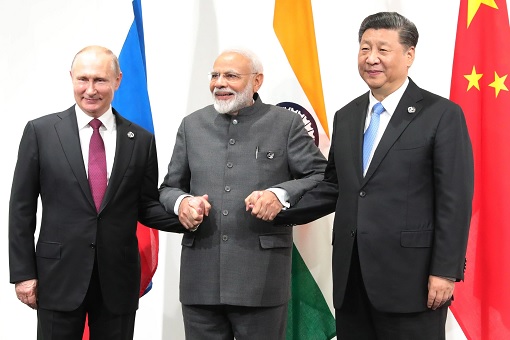
But the biggest shock came from the Arabs, the traditional allies of America in the Middle East. It’s not hard to see the double standard and hypocrisy practised by the U.S. when it repeatedly threatening and criticizing China for not condemning Russia, but allows India, Pakistan, UAE (United Arab Emirates), Saudi Arabia and even Israel and Turkey (NATO member) to get away.
The U.S. was caught with its pants down when the UAE, who has a seat in the Security Council, abstained on a U.S.-drafted resolution condemning Russia’s invasion of Ukraine. The Gulf state argued that taking sides “would only lead to more violence”. Therefore, the best approach, it says, is “to encourage all parties to resort to diplomatic action and to negotiate to find a political solution”.
Heck, the UAE has even grown a pair when it said the country should not be projected as a puppet of the United States anymore. Abdulkhaleq Abdulla, a political science professor in the UAE, said – “Just because we have such great relations with America, we do not take orders from Washington, and we have to do things consistent with our own strategy and priority.”
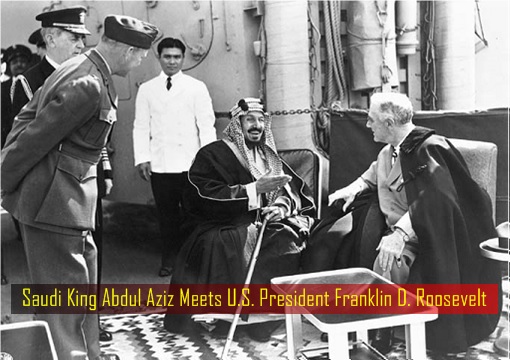
Indeed, the Arabs were long regarded as “puppets” for the Americans since 1945, when then Saudi King Abdul Aziz bin Saud and U.S. President Franklin D. Roosevelt met onboard the USS Quincy, an American battleship, in the Suez Canal. The historical meeting on the Valentine’s Day forged a long relationship between the U.S. and Saudi, which expanded to neighbouring monarchies.
However, it seems the oil-for-protection agreement is slowly coming to its end, judging by the defiance of the Arabs when the U.S. needed them the most in condemning Russia. But the cracks in the U.S. influence did not happen overnight. The distrust can be traced to the 2011 Arab Spring uprisings, which was contributed in part to Barack Obama’s famous “Cairo Speech” in 2009.
The speech – “A New Beginning” – was being blamed by the traditional Arab monarchies as the trigger that started the protests for democracy. The uprisings began with anticipation of support from the U.S., but Obama stayed quiet instead, trying to portray the protests as none of America’s business. The U.S.’ half-hearted intervention saw unrest, even till today in many parts of the Arab world.
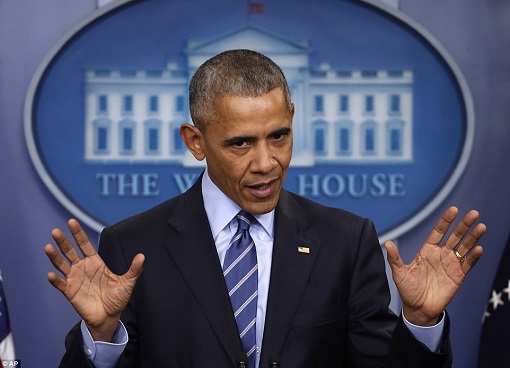
Saudi Arabia and the UAE knew they could not depend on the U.S. to protect their national interests. When the U.S. became the world’s largest crude oil producer in 2018, the 1945 deal was as good as dead. The United States doesn’t need Saudi oil anymore – it is almost energy independent. Worse, America has become a competitor of Arabs in the energy business.
After Joe Biden was elected, he removed the Iran-aligned Houthi rebels (Yemen) as a terrorist organization. Less than a year later, the Houthis have begun rocket strikes on the UAE and Saudi. Abu Dhabi and Riyadh demanded the Houthis reinstated as terrorists, but Washington has only promised to improve their defence – a sign of downgrade of American commitment to protect Saudi and its allies.
Biden’s foot-dragging is easy to understand. He has promised to restore the nuclear deal (which was scrapped by Donald Trump) so long as Iran reimposed the limits on its program. Meaning the U.S. president would lift U.S. terrorism sanctions on Iran, the world’s leading state sponsor of terrorism. This is also one of the reasons Israel went against U.S.’ sponsored sanction on Russia.
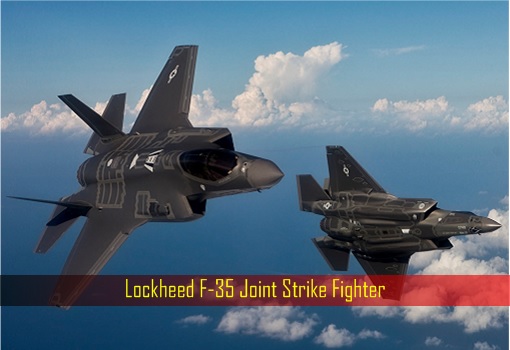
The UAE was also furious with the U.S.’ deliberate stalling in selling its fifth-generation F-35 Lightning II jets, despite earlier commitments during Trump administration to deliver a formidable fleet of 50 Lockheed F-35s, including 18 Reaper drones and assorted munitions in a deal worth a staggering US$23 billion. Biden administration wanted to re-study how to restrict the usage of F-35s for UAE.
It was only after the Emirates suspended the mega deal that the U.S. says it is ready to move forward with the fighter jet sale. The rich Gulf state deliberately signed a deal for 80 French Rafale fighter jets as an alternative to the F-35s. Last month (Feb 2022), it stunningly purchased 12 Chinese L-15 light combat jets, with an option to purchase additional 36 in the future.
As US-UAE relations turn sour, the bilateral ties between China and UAE becomes closer. Not only China is the UAE’s largest trading partner (US$50 billion trades), the Chinese has never interfered in Arabs’ internal affairs and has kept a low profile on the issue of the Houthi conflicts. Beijing insists that ethnic and religious issues cannot and should not be resolved by outsiders.

During the Coronovirus pandemic, a new factory was set up in Abu Dhabi to manufacture Covid-19 vaccine under a joint venture between Chinese pharmaceutical giant Sinopharm and Abu Dhabi-based technology company Group 42 (G42). The plant, capable of producing 200 million doses a year, was part of Beijing’s initiatives to help the UAE diversifies its economy from energy sector.
In March 2021, the UAE launched “Operation 300bn”, an ambitious 10-year plan to increase the contribution of the industrial sector from 133 billion to 300 billion dirham. The plan to transform the country into a technology-based sustainable economy saw heavy participation from China’s mid-and-high-level technologies. The cooperation between both nations has even expanded into education.
Since a Chinese language course started in 2006 in the UAE, the Chinese-language education has seen the number of enrollments increased from merely 20 students to a whopping 45,000 last year. The first Chinese school outside China was opened in Dubai in 2020. There are now 142 schools (as of Dec 2021) in the UAE offering Chinese language classes.

In 2019, despite US pressure to avoid Huawei’s products, the UAE announced that it would employ equipment from the Chinese technology giant to establish a new high-speed wireless network. Washington, extremely concerned over Huawei 5G dominance, has even used its F-35 as bargaining chip to threaten the Arab state, only to see the UAE chose technology over fighter jets.
Likewise, the Saudi isn’t happy with the U.S.’ hypocrisy and flip-flop in its foreign policies, which changes every 4 years when a new president is elected. It was only in 2020 that Joe Biden called Saudi Arabia a “pariah”. Now that the economic sanctions have failed to defeat Putin, the U.S. president is begging the same pariah kingdom for help. However, Saudi has so far decided to side with Russia.
As the crude oil prices hit above US$100 a barrel, President Biden tried to get Saudi Arabia, supposedly U.S. biggest and closest ally in the region, to increase oil supply after formally banning Russian oil imports. Embarrassingly, Saudi Crown Prince Mohammed bin Salman and the UAE’s Sheikh Mohammed bin Zayed al Nahyan have “declined calls” with the U.S. president.
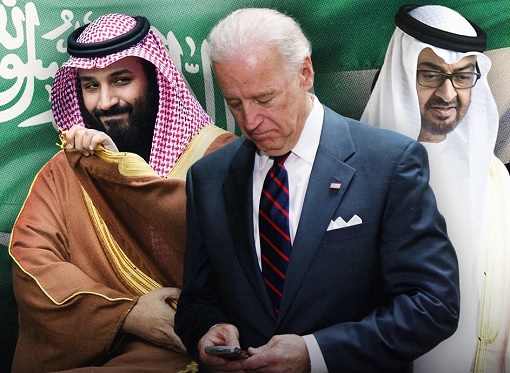
When asked about damaged relations between Saudi Arabia and the US following the murder of journalist Jamal Khashoggi and its impact on the US president’s opinion of him, Crown Prince Mohammed replied – “Simply, I don’t care. It’s up to him to think about the interests of America”. Despite the U.S. request, OPEC+, which includes Russia, declined to increase oil production.
Instead of entertaining the U.S., the Saudi has instead engaged in active talks with China to sell its oil in Yuan / Renminbi, bypassing the U.S. dollar. The Chinese buy more than 25% of its oil from Saudi. Last year (2021), Saudi sold 1.76 million barrels a day to China, more than Russia’s 1.6 million barrels. If the commodity is priced in Yuan, it would certainly boost China’s currency.
The kingdom has also expressed its interest in yuan-denominated futures contracts, known as “petroyuan”, something which China introduced in 2018 to compete with petrodollars. Unlike Washington’s policy of making Saudi forever depends on the U.S. for weapons and protection, Riyadh saw how China has helped it build its own ballistic missiles, and even provided consultations on a nuclear program.
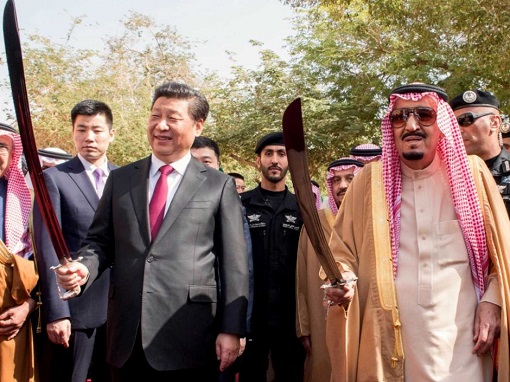
Beijing has offered incentives such as multibillion-dollar investments in the kingdom like NEOM, a pet project of Crown Prince Mohammed. Such mega projects could be funded by Yuan revenues from the crude oil exports to China. Saudi also hopes the shifting to the Chinese currency would strengthen both countries’ friendship, which in turn reduce support for traditional rival Iran.
Earlier this week, UAE Energy Minister Suhail Al-Mazrouei said that Russia would always be a part of OPEC+, despite sanctions on Moscow. On Tuesday, Saudi Energy Minister Prince Abdulaziz Salman said OPEC+ would not mix politics with business. This suggests that the Gulf states are seriously seeking an “independent foreign policy” based on national interests, which China and Russia could provide.
Aside from Kuwait, the Arab world has chosen to adopt a neutral position, leading to a lack of condemnation of Russia. They know the U.S. is not the only game in town, what more after America’s abrupt exit from Afghanistan. It’s not rocket science that China and Russia are the only options available in the eventuality the U.S. retreats from the region to focus elsewhere.
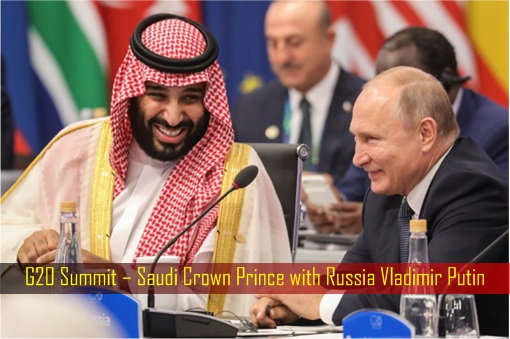
More importantly, according to an Arab Youth Survey, 70% of youngsters in the 50 Arab cities see Russia as an ally and only 26% consider it as an enemy. In comparison, only 57% see the U.S. as an ally while 41% see it as an enemy. The region hopes to see a bipolar world, or a shift towards a multipolar world where Russia and China joined forces to compete for power with the U.S.
Other Articles That May Interest You …
- Pay Gas In Ruble Or Else – Europe In Serious Trouble As Putin Retaliates Against Western Sanctions
- Is U.S. Really That Powerful? – Zelensky Frustration Grows Over Biden Foot-Dragging In Helping Ukraine
- Bypassing US Dollar – India And Saudi Arabia To Turn To Chinese Yuan In Trades With Russia & China
- Russian Sanctions Could Backfire On The US Dollar – Why It’s Worthwhile To Diversify To Chinese Renminbi
- From Wheat To Oil & Gas – How Russia Invasion Of Ukraine Affects Europe’s Food Supply, And Even Your Loaf Of Bread
- U.S. Unlikely To Start A War With Russia Or China – But The Bluffing Game Has Driven Them To Unite Against The U.S.
- China Creates Digital Currency – Here’s Why It’s A Big Deal To The World’s Economy, And A Big Problem For The U.S.
- Economic Destabilization – How China Prepares For American & Japanese Military Interference In Taiwan Conflict
- Xi Jinping Says “No Force Can Stop The Chinese”, Shows Nuclear Missiles Which Can Hit The U.S. In 30-Minutes
- North Korea’s 10 Clever Tactics To Evade Economic Sanctions
- Here Are Russia’s 3 Awesome Weapons Which The U.S. Is Absolutely Terrified Of

|
|
March 31st, 2022 by financetwitter
|


|

|

|

|

|

|








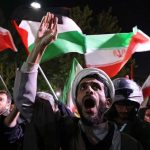


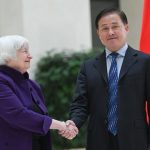
















EU to Propose Sweeping New Sanctions against Russia Worth Billions of Euros – source /Tuesday, 05 Apr 20226:33 PM MYT
https://www.thestar.com.my/news/world/2022/04/05/eu-to-propose-new-sweeping-sanctions-against-russia-worth-billions-of-euros—source
========
This is like self inflicting pain to oneself or more like onto their own citizens. Don’t you know Russia has China and India with a combined population of approximately 2.7 billion people to work with.